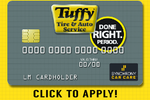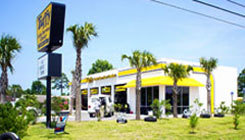This page provides answers to some of the most frequently asked questions about vehicle repair and service. We've thrown in some of our favorite tips and recommendations, too. Please call us or consult our Contact Us page for answers to your specific questions. We are happy to assist you!
Tires
-
Should I rotate my tires?
The main purpose of regularly rotating tires is to achieve more uniform wear for all tires on the vehicle. It is recommended that you rotate your tires at least every 6,000 to 8,000 miles or uneven wear may develop. At strongly tire-oriented facilities this is a service typically done at no additional cost; along with free flat repairs, Nitrogen inflation, and an undercar inspection.
-
How important is wheel alignment?
It is very important! Having your wheels aligned helps in prolonging the life of your tires. Research indicates that the average car is driven about 12,000 miles per year. A car with toe alignment just 0.34 degrees (Just 0.17 inches) out of specification has dragged its tires sideways.
-
With so many brand options and price differences why not just pick the cheapest tire. Is there really a difference?
The old adage: you get what you pay for is true in tire purchasing – somewhat! Since the introduction of the “radial tire” the assumption is that no significant changes have occurred in the world of tire building.
The facts are that major tire builders are spending tens of millions of dollars annually in research to improve their products and the reliability and performance of tires have taken a quantum leap forward. Research in the area of tread compounding polymers, rubber mixing methods, tread design, casing design and materials, build processes, and other research has resulted in a product that is far advanced from the tires we were driving on a decade ago. The discovery of Silica’s use in tread rubber compound alone has greatly influenced wear and adhesion characteristics of tires. Some of today’s tires can stop a car on a wet highway in distances unfathomable a decade ago. Tire builders strive to produce a product that balances production costs against safety, noise, ride quality, wear, handling, rolling resistance, and other attributes. Their cheapest products will not much focus on safety and other technologies that better tires have to offer. Conversely the higher priced lines often fall short of the best features. Knowledgeable Tire Sales Advisors can discuss test data and sort through the claims that manufacturers make regarding their products and help you make this important decision.
Vehicle Maintenance
-
My check engine or service engine soon light comes on. What should I do?
When you first start your car all the dashboard lights come on as a safety test. These lights will go off when the test is complete. If your light comes on later you need to have it checked by a competent technician familiar with modern diagnostic procedures. This could be a simple problem, but left alone it may result in an expensive repair. Don’t ignore this warning.
-
I have 100,000 mile spark plugs in my car. When will I need a tune-up?
In the traditional sense there is no such thing as a tune-up anymore. Carburetors and distributors with their myriad of parts destined to failure have been replaced with electronic injectors and electronic ignition systems. There is virtually little to wear out.
Aging Ignition wires and spark plugs may continue to function for 100,000 miles but not optimally. The car manufacturer’s boastful claim of 100,000 between tune-ups has little grounding in common sense, and is mostly a marketing ploy. At the price of gasoline these days even a three percent decrease in fuel efficiency is expensive, not to mention ecologically unfriendly. A fresh set of spark plugs any time over 50,000 miles will normally make a noticeable difference.
-
With the change of the season and the temperatures, do I need to have my car checked?
It is a good idea to have your coolant checked to determine its freezing and boiling points to verify whether it needs to be changed. Have your air conditioner tested before the summer heats up, it is cheaper to fix before the season gets started.
Vehicle Fluids
-
I see a fluid leak under my car, what is it?
You can identify fluids by their color and consistency:
• Yellowish green, pastel blue or florescent orange colors indicate an overheated engine or an antifreeze leak caused by a bad hose, water pump or leaking radiator.
• A dark brown or black oily fluid means the engine is leaking oil. A bad seal or gasket could cause the leak.
• A red oily spot indicates a transmission or power-steering fluid leak.
A puddle of clear water usually is no problem. It may be normal condensation from your vehicle's air conditioner.
Vehicle Smells & Sounds
-
My car is making a terrible sound, what information will help?
Squeaks, squeals, rattles, rumbles, and other sounds provide valuable clues about problems and maintenance needs. Here are some common noises and their definitions.
Squeal - A shrill, sharp noise, usually related to engine speed.
Click - A slight sharp noise, related to either engine speed or vehicle speed.
Screech - A high-pitched, piercing metallic sound; usually occurs while the vehicle is in motion.
Rumble - a low-pitched rhythmic sound.
Ping - A high-pitched metallic tapping sound, related to engine speed.
Heavy Knock - A rhythmic pounding sound..
Clunk - A random thumping sound.
The more details you can provide us, the better chance of locating the problem quickly. Does the noise occur when the engine is cold or warm? Hot or cold outside, rainy or dry? Does the noise occur while driving or only when parked? These clues help the technician diagnose your problems faster, saving you time and money!
Oil Change
-
What is synthetic motor oil?
Synthetic motor oils can be a good choice for high output, turbocharged or supercharged engines, vehicles that are used for towing (especially during hot weather), or vehicles that are operated in extremely cold or hot climates.
Synthetic motor oils, though several times more expensive than mineral-based motor oils, can improve fuel economy and provide longer intervals between changes. They also provide instant lubrication on start-up.
Troubleshooting
-
What should I do if my car starts to overheat?
This is a very serious problem – if your car overheats for too long, you can damage your engine. As soon as possible, find a safe place to pull off the road and shut the engine off! Do not attempt to check the fluid level in the radiator as it can burn you. The best thing to do is have your car towed to a repair shop.
Electrical System
Fuel System
Improving Gas Mileage
-
How can you increase fuel mileage?
To optimize gas mileage, check tires for proper inflation, make sure wheels are in alignment, check and replace filters, change Your oil regularly, keep your engine properly tuned, empty out your trunk of unnecessary items, observe the speed limit. These seemingly minor adjustments to your driving and maintenance habits can save on gas--and money!
Cabin Air Filters
-
Why are Cabin Air Filters important?
Air quality is becoming a major concern for many people - outdoors, in our homes, and now even in our automobiles. An estimated 50 million Americans suffer from hay fever and other allergy-related problems.
Auto Glass
-
What does the windshield have to do with safety?
The windshield of your car does more than keep the wind, rain and bugs off you while you drive. It provides a backdrop for the airbags to help ensure that they inflate properly. It also car provides 60% of strength of the roof and helps prevent the roof from caving in during a rollover accident.
-
What's the difference between my windshield and the other glass in my car?
Auto glass manufacturing has evolved over the past hundred years to incorporate important safety features. Windshields are made of “Laminated Glass” not ordinary window glass. This are formed from two pieces of glass with a layer of vinyl in between. This helps the windshield stay intact in the event of a collision. The side and rear windows are usually made of tempered glass, which has been treated to make it much stronger than other glass of the same thickness. If it breaks, it should shatter into small pieces rather than shards. In recent years, vehicle manufacturers have started using laminated windshield-type glass for side windows in some vehicles









